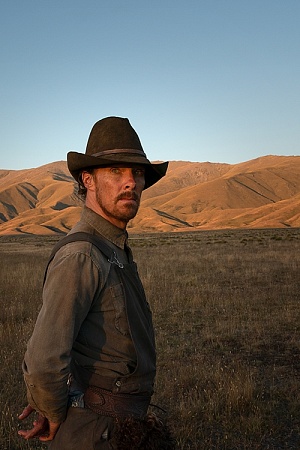Gauguin: Voyage de Tahiti ★★★
Paul Gauguin’s storied journey to Tahiti represents one of the great exotic odysseys in modern art. In 1891, in a fit of frustration with the superficiality of the Parisian art world and a city that was ‘rotten, filthy and disgusting’, as Gauguin’s titular character puts it, Gauguin left his young family and journeyed to the proverbial South Seas in search of the raw poetry of wilderness, a more authentic mode of living and a Rousseauian idea of ‘savagery’. This is, of course, a highly cinematic idea that has been duly depicted in several films, all of them relatively low in budget and mostly unspectacular in quality.
The most respectable is arguably Wolf At The Door (1986), in which the Post-Impressionist is played by Donald Sutherland, whose son Keifer also took up the role in Paradise Found (2003). Anthony Quinn played Gauguin with admirable brio in the Van Gogh biopic Lust For Life (1950). This latest interpretation of the artist’s travails, from director Edouard Deluc, firmly buys into the romance of Gauguin’s adventures. Yet despite technical aplomb and dazzling cinematography, Gauguin is limited by a narrative that seems unable to choose which aspect of the artist’s life to focus on and dialogue that barely goes beyond exposition and offers little in the way of convincing linguistic distinction between characters. It also plays somewhat too loosely with the reality of Gauguin’s biography.
The film begins with Gauguin (the always enigmatic Vincent Cassel) despondently traipsing the grey streets of Paris. Unable to sell his paintings, he forces his large family to live in a squalid apartment, rails to his friends about the injustices of his perceived failures, and dreams of moving to Polynesia, where he believes he ‘won’t need money’. With startling abruptness, the film then switches to this South Pacific idyll – nothing is shown of the journey itself, let alone any farewells to his wife and children – where an emaciated Gauguin is living in a primitive hut. A diabetic, he suffers a serious heart attack, a reminder of his mortality that prompts him to set out by horseback into the untamed Tahitian interior to see a major landmark. On the way, he comes across a tribe that offers him a wife, Tehura (Tuheï Adams), whom he accepts. The development of their relationship, and Gauguin’s ongoing efforts to eke out a living, make up the rest of this desultory film.
Continue reading for only $10 per month. Subscribe and gain full access to Australian Book Review. Already a subscriber? Sign in. If you need assistance, feel free to contact us.















Leave a comment
If you are an ABR subscriber, you will need to sign in to post a comment.
If you have forgotten your sign in details, or if you receive an error message when trying to submit your comment, please email your comment (and the name of the article to which it relates) to ABR Comments. We will review your comment and, subject to approval, we will post it under your name.
Please note that all comments must be approved by ABR and comply with our Terms & Conditions.